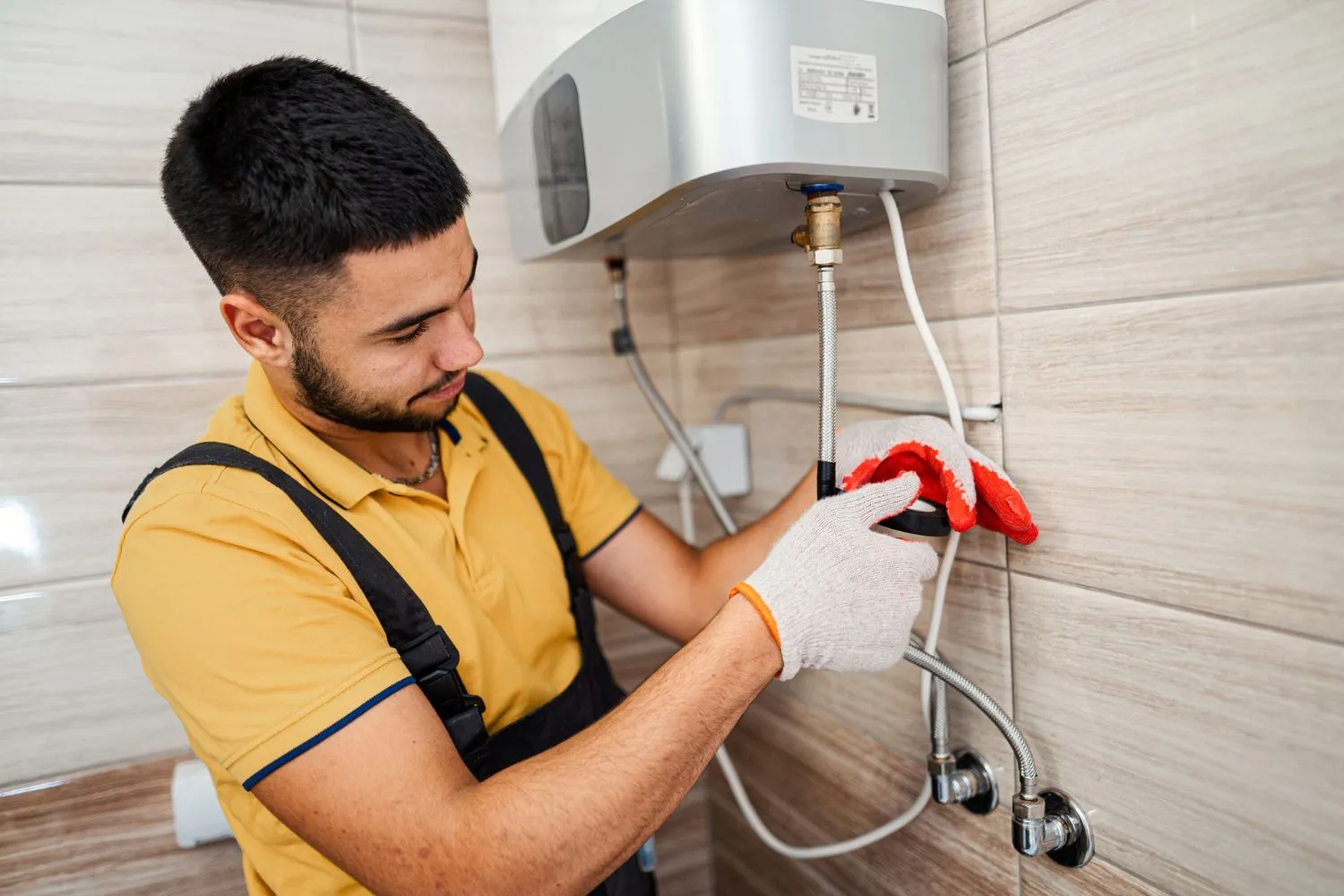How To Fix Regular Heater Issues
How To Fix Regular Heater Issues
Blog Article
What're your opinions on Common Problems with Your Home Water Heater?

Imagine starting your day without your regular warm shower. That already sets an inadequate tone for the rest of your day.
Every home requires a dependable water heater, however just a couple of know exactly how to handle one. One very easy means to maintain your hot water heater in top shape is to look for faults routinely and repair them as quickly as they appear.
Bear in mind to shut off your hot water heater before smelling around for mistakes. These are the hot water heater faults you are probably to come across.
Water as well hot or too cold
Every hot water heater has a thermostat that establishes just how warm the water gets. If the water coming into your house is also warm in spite of setting a hassle-free optimum temperature level, your thermostat might be faulty.
On the other hand, also cold water may be due to a fallen short thermostat, a damaged circuit, or inappropriate gas circulation. For example, if you utilize a gas water heater with a broken pilot light, you would certainly get cold water, even if the thermostat is in excellent problem. For electrical heating units, a blown fuse may be the wrongdoer.
Not nearly enough hot water
Hot water heater come in lots of dimensions, depending on your warm water needs. If you run out of hot water prior to every person has had a bathroom, your water heater is too little for your family size. You need to consider installing a larger water heater storage tank or choosing a tankless hot water heater, which takes up less space and also is much more durable.
Strange sounds
There are at least five sort of noises you can learn through a hot water heater, but the most typical interpretation is that it's time for the water heater to retire.
Firstly, you must recognize with the typical sounds a water heater makes. An electric heating system might seem different from a gas-powered one.
Standing out or banging audios normally imply there is a slab of debris in your storage tanks, and it's time to cleanse it out. On the other hand, whistling or hissing audios might simply be your shutoffs letting some stress off.
Water leaks
Leakages might originate from pipes, water links, valves, or in the worst-case scenario, the container itself. In time, water will certainly rust the container, as well as locate its way out. If this occurs, you require to replace your hot water heater asap.
Nevertheless, prior to your change your entire storage tank, make certain that all pipes are in location which each shutoff works perfectly. If you still need assistance recognizing a leakage, call your plumber.
Rust-colored water
Rust-colored water implies among your hot water heater parts is worn away. Maybe the anode pole, or the tank itself. Your plumber will be able to identify which it is.
Lukewarm water
No matter how high you established the thermostat, you will not obtain any kind of warm water out of a heating system well past its prime. A hot water heater's performance might minimize with time.
You will also obtain warm water if your pipelines have a cross connection. This suggests that when you activate a faucet, hot water from the heater moves in along with routine, cold water. A cross connection is very easy to area. If your hot water taps still follow shutting the hot water heater valves, you have a cross link.
Discoloured Water
Rust is a significant source of filthy or discoloured water. Corrosion within the water storage tank or a failing anode pole might create this discolouration. The anode rod shields the storage tank from rusting on the within and must be checked yearly. Without a pole or a correctly operating anode rod, the hot water quickly rusts inside the container. Contact a professional water heater professional to identify if replacing the anode pole will certainly deal with the problem; if not, change your hot water heater.
Verdict
Preferably, your hot water heater can last 10 years before you need a change. However, after the 10-year mark, you may experience any of these mistakes more routinely. At this moment, you must include a new water heater to your budget.
How To Troubleshoot 3 Common Water Heater Problems in Twin Cities
The Water Heater Is Leaking
A leaky cold water inlet valve A loose pipe fitting A leaky temperature and pressure relief valve A corroded anode rod A cracked tank Turn Off Your Water Heater:
Shut off your gas water heater by turning the gas valve on the unit to the “OFF” position. Shut off your electric water by switching its power off at your electrical panel. Look for a two-pole breaker labeled “water heater” and turn it to the “OFF” position. Move the ball valve connected to the water heater to be perpendicular to the piping at a 90° angle. Look for the Leak:
Depending on whether the water is coming from the tank's top or bottom, you’ll want to look for the leak in different locations.
If the leak comes from the top of the tank, carefully look for water escaping from the cold water inlet valve or loose pipe fittings. Rusted hot and cold water valves can have loose connections with the tank, with water leaking out of them.
https://mspplumbingheatingair.com/blog/how-to-troubleshoot-3-common-water-heater-problems
I recently found that piece about Water Heater Repair and Troubleshooting when exploring the web. Enjoyed reading our write-up? Please share it. Help somebody else discover it. We recognize the value of reading our article about Water Heaters Problems.
Sink issue? Dial. Report this page